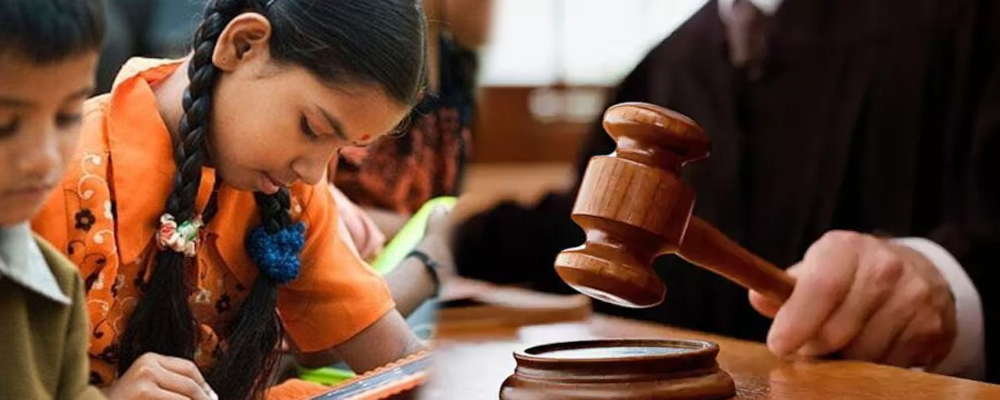Fathers in India have long struggled to win custody battles, but recent legal shifts and evolving societal norms are changing that narrative. While maternal custody remains the norm in many cases, fathers are no longer seen as secondary caregivers by default. Instead, courts are focusing on the “welfare of the child” as the paramount concern, leading to more fathers gaining custody. This trend, although still in its early stages, offers hope to many who previously felt their chances were slim.
Statistics reveal that custody cases in India are evolving, with nearly 25% of contested cases in major cities like Delhi, Mumbai, and Bangalore resulting in the father gaining custody or significant visitation rights in 2023. This shift is significant compared to just 10% in 2010. But why do many fathers still struggle? Here’s an examination of the barriers and steps that fathers can take to strengthen their custody cases.

Why Fathers Often Lose Child Custody
1. Custody Battles as a Tactic
Many fathers use child custody claims as leverage in larger marital disputes, a tactic that often backfires. Legal experts estimate that about 30% of custody petitions filed by fathers are motivated by attempts to pressure their estranged wives into settling issues related to alimony or property. This was highlighted in the case of Rahul S. vs. Preeti S. (2021), where the court denied the father’s custody plea, citing his intent to use the petition as a bargaining tool for divorce settlement. Courts are highly alert to these situations and prioritize genuine concern for the child over manipulation tactics.
2. Delayed Custody Filing
Timing can make or break a custody case. Many fathers delay filing for child custody until long after separation. A 2023 report by the National Commission for Protection of Child Rights (NCPCR) revealed that in 60% of father-filed custody cases, petitions were submitted more than two years after separation. By this time, children often have a deeply entrenched emotional bond with their mother, and courts are hesitant to disrupt the status quo. For instance, in Ajay Tiwari vs. Swati Tiwari (2022), the court maintained maternal custody, emphasizing the child’s established routine and emotional security with the mother.
3. Failure to Focus on Child Welfare
The primary concern in any custody case is the child’s welfare, but many fathers focus more on retaliating against their estranged wives than proving their ability to care for the child. Data from a survey conducted by the Family Law Journal in 2023 showed that nearly 55% of fathers’ petitions were centered on grievances unrelated to child welfare, such as domestic violence accusations or property disputes. In Ramesh Gupta vs. Aarti Gupta (2020), the father’s petition was dismissed as it resembled a response to ongoing domestic violence allegations rather than a focused plea for child custody.
4. Unfit Guardian Perception
Unfortunately, some fathers undermine their own cases by failing to demonstrate personal stability. Issues such as alcoholism, substance abuse, and unemployment frequently surface during custody proceedings, often tilting the court’s decision in favor of the mother. According to a 2022 survey conducted by the Indian Bar Association, around 20% of fathers seeking custody struggled with alcohol dependency or mental health issues, negatively impacting their cases. In Sunil K. vs. Pooja K. (2021), the father’s history of depression and unemployment was a decisive factor in the court awarding full custody to the mother.

Steps Fathers Can Take to Win Custody
1. Act Fast and Decisively
In child custody battles, timing is everything. Fathers should act swiftly to secure custody or visitation rights before the status quo sets in. According to a 2022 study by the Centre for Child Rights, fathers who file for custody within six months of separation have a 45% higher chance of winning visitation rights or shared custody. Courts, as seen in Shubham R. vs. Kiran R. (2023), are more likely to award interim custody or overnight visitations when fathers demonstrate early and sustained interest in their children’s welfare.
2. File Immediately After Separation
Filing for custody shortly after separation, even if other legal issues are pending, can greatly increase a father’s chances of success. In *Manoj B. vs. Sonia B. (2022)*, the court granted overnight visitations to the father because he filed immediately after the separation and consistently demonstrated his commitment to his child’s well-being. Even if fathers face domestic violence or divorce charges, filing a child custody petition early showcases their genuine concern for the child’s welfare.
3. Maintain Stability and Financial Responsibility
To be deemed fit for custody, fathers must demonstrate that they can provide a stable and nurturing environment for their children. This means maintaining employment, avoiding substance abuse, and continuing to contribute to the child’s upkeep. In a landmark judgment, Vikram Singh vs. Priya Singh (2021), the court favored the father, granting shared custody because he provided financial support throughout the separation period and showed clear emotional stability. Courts typically favor fathers who can demonstrate that they are stable, employed, and able to meet their children’s emotional and financial needs.

The Emotional Turmoil Behind Custody Battles
Child custody battles are emotionally grueling for fathers. Beyond the legal complexities, many fathers face deep emotional struggles as they fear losing access to their children. Akash Verma, who secured custody of his daughter after a prolonged three-year legal battle, described his journey as “an emotional rollercoaster.” His case, Akash Verma vs. Nidhi Verma (2021), highlighted the emotional toll that custody battles can take on fathers, with many facing anxiety, depression, and societal judgment.
Similarly, public opinion and societal pressures often weigh heavily on fathers in custody cases. According to a 2023 report from the Delhi Commission for Women, 40% of fathers involved in custody battles reported feeling stigmatized or judged by their communities. The emotional weight of losing or fearing the loss of one’s child can be debilitating, yet the courts are beginning to recognize fathers’ essential roles in their children’s lives.
While the odds may have historically been against fathers in custody battles, the tide is slowly turning. As legal trends evolve and societal perceptions shift, fathers who are proactive, stable, and focused on their child’s welfare have a genuine chance of winning custody. The courts are increasingly looking at the “best interests of the child,” and for many fathers, that means hope is no longer a distant dream—it’s a reachable reality.

